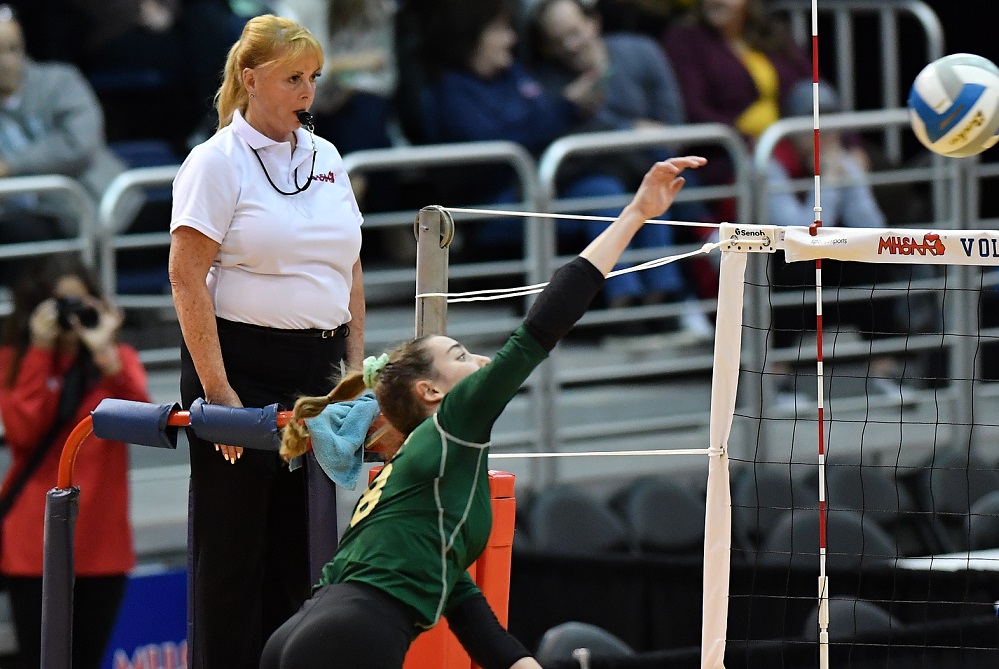
Be the Referee: No 1st-Year Fee
October 12, 2017
In this week's edition, assistant director Mark Uyl explains the minimal costs of becoming an official and how the MHSAA further helps those signing up for the first time by the waiving registration fee.
Be The Referee is a series of short messages designed to help educate people on the rules of different sports, to help them better understand the art of officiating, and to recruit officials.
Below is this week's segment – No 1st-Year Fee - Listen
We often get asked the question – exactly how much does it cost to become an official?
The first step in the process includes registering with the MHSAA, which costs roughly $50. With this $50, an official gets rules books, case books, mechanics manuals and over $1 million in liability insurance coverage.
For anyone registering for the first time, the MHSAA waives that fee in the first year. With someone who is new to officiating, the cost of purchasing a uniform, equipment, and attending some camps and clinics are going to be first-year expenditures – which is why that first year is free on the MHSAA.
Past editions
October 5: Athletic Empty Nesters - Listen
September 28: Misunderstood Football Rules: Kicking - Listen
September 21: Preparation for Officials - Listen
September 14: Always Stay Registered - Listen
September 7: Other Football Rules Changes - Listen
August 31: Pop-Up Onside Kicks - Listen
August 24: Blindside Blocks - Listen

Be the Referee: Volleyball Obstruction
By
Brent Rice
MHSAA Assistant Director
September 23, 2021
Be The Referee is a series of short messages designed to help educate people on the rules of different sports, to help them better understand the art of officiating, and to recruit officials.
Below is this week's segment – Volleyball Obstruction - Listen
Ever wonder why in volleyball some balls hit into obstructions remain in play, while others are replayed, and some end the rally?
If a ball hits an obstruction over a playable area during a rally, and then is played by the same team, it has the same status as any other hit. However, that isn’t the case in all other instances.
If the ball hitting the wall or an object attached flush to the wall doesn’t actually interfere with a player’s legitimate effort to play the ball, the ball is dead and a loss of rally and point shall be awarded. If it does interfere with the playing of the ball, a replay is declared if the wall is less than six feet from the boundary.
If the ball hits a suspended backboard over the playable area, a replay will be declared as long as the referee believes the ball would have remained in play. Serves that hit any obstruction are a loss of rally and point.
Previous editions
Sept. 16: Catch or No Catch - Listen
Sept. 9: Intentional Grounding – Listen
Sept. 2: Pass Interference – Listen
Aug. 26: Protocols and Mechanics – Listen

